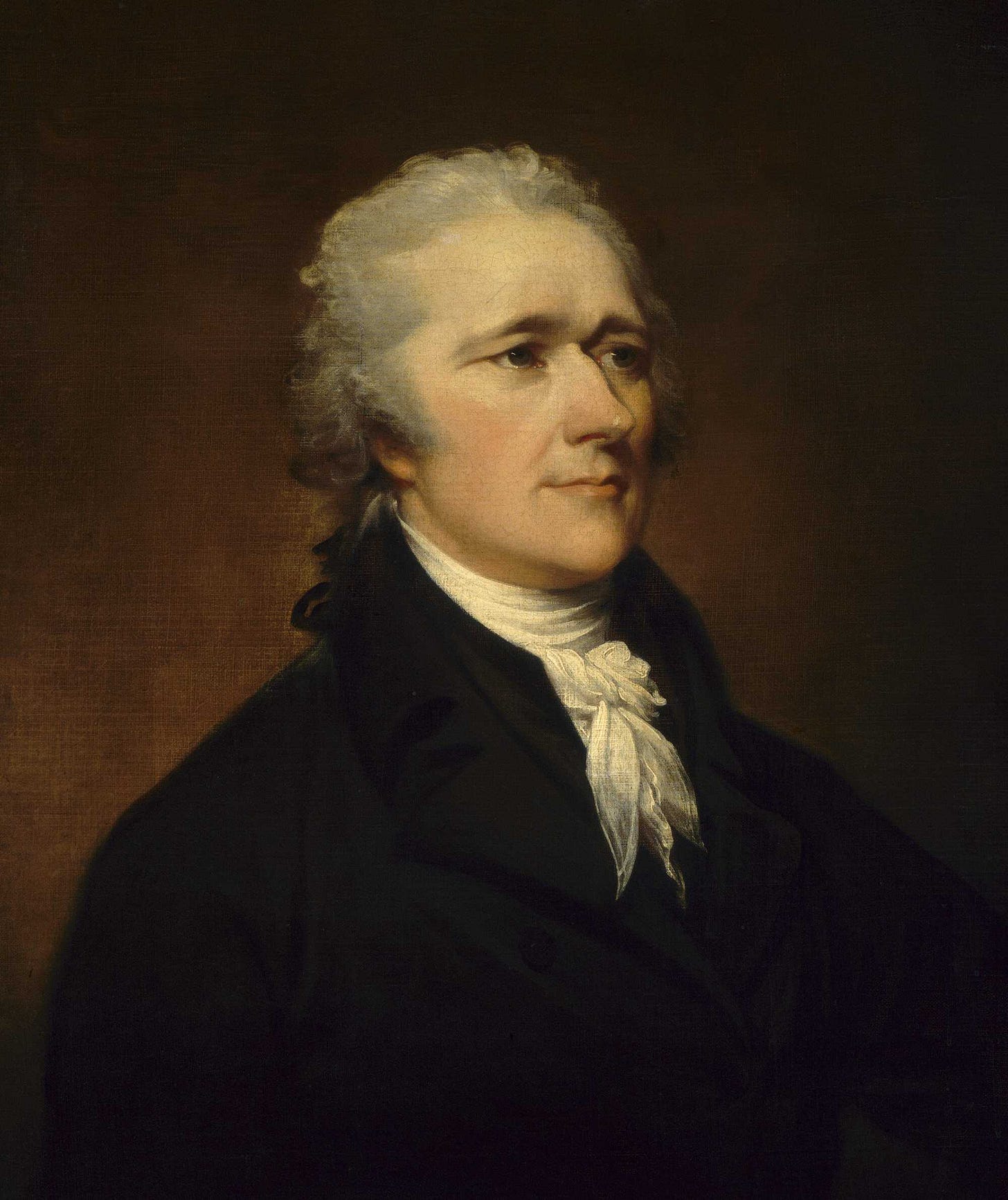Prefatory Note: One wouldn’t think that the idea of a militia would be such a big deal, but it was. Remember the words of the Second Amendment that so vexes us: “A well regulated Militia, being necessary to the security of a free State, the right of the people to keep and bear Arms, shall not be infringed.” Some in the twentieth century have taken this language to create a free-fire zone in the U.S. But what the Founders were deeply concerned about were the issue of militias and how they could be used and abused. The quotes below don’t do the entire essay justice (they never do), but as with past essays, read this one in light of today’s issues and arguments. Haven’t you been hearing about the “posse comitatus” law? And read the final quoted paragraph: can we be so sanguine as Hamilton suggests about arming our fellow citizens? One hopes so, but can we when “an arbitrary power” takes control and gives orders?
FEDERALIST No. 29. Concerning the Militia
From the New York Packet. Wednesday, January 9, 1788 HAMILTON To the People of the State of New York:
THE power of regulating the militia, and of commanding its services in times of insurrection and invasion are natural incidents to the duties of superintending the common defense, and of watching over the internal peace of the Confederacy.
It requires no skill in the science of war to discern that uniformity in the organization and discipline of the militia would be attended with the most beneficial effects, whenever they were called into service for the public defense. It would enable them to discharge the duties of the camp and of the field with mutual intelligence and concert an advantage of peculiar moment in the operations of an army; and it would fit them much sooner to acquire the degree of proficiency in military functions which would be essential to their usefulness. This desirable uniformity can only be accomplished by confiding the regulation of the militia to the direction of the national authority. It is, therefore, with the most evident propriety, that the plan of the convention proposes to empower the Union "to provide for organizing, arming, and disciplining the militia, and for governing such part of them as may be employed in the service of the United States, RESERVING TO THE STATES RESPECTIVELY THE APPOINTMENT OF THE OFFICERS, AND THE AUTHORITY OF TRAINING THE MILITIA ACCORDING TO THE DISCIPLINE PRESCRIBED BY CONGRESS."
. . . .
By a curious refinement upon the spirit of republican jealousy, we are even taught to apprehend danger from the militia itself, in the hands of the federal government. It is observed that select corps may be formed, composed of the young and ardent, who may be rendered subservient to the views of arbitrary power. What plan for the regulation of the militia may be pursued by the national government, is impossible to be foreseen.
. . . .
There is something so far-fetched and so extravagant in the idea of danger to liberty from the militia, that one is at a loss whether to treat it with gravity or with raillery; whether to consider it as a mere trial of skill, like the paradoxes of rhetoricians; as a disingenuous artifice to instil prejudices at any price; or as the serious offspring of political fanaticism. Where in the name of common-sense, are our fears to end if we may not trust our sons, our brothers, our neighbors, our fellow-citizens? What shadow of danger can there be from men who are daily mingling with the rest of their countrymen and who participate with them in the same feelings, sentiments, habits and interests? What reasonable cause of apprehension can be inferred from a power in the Union to prescribe regulations for the militia, and to command its services when necessary, while the particular States are to have the SOLE AND EXCLUSIVE APPOINTMENT OF THE OFFICERS? If it were possible seriously to indulge a jealousy of the militia upon any conceivable establishment under the federal government, the circumstance of the officers being in the appointment of the States ought at once to extinguish it. There can be no doubt that this circumstance will always secure to them a preponderating influence over the militia.
. . . .
PUBLIUS



